Organizers
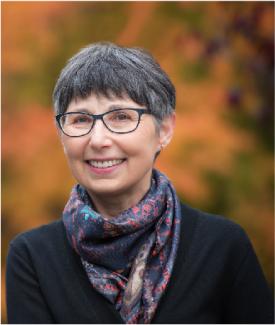
Janet F. Werker | University of British Columbia
Dr. Janet F. Werker, University Killam Professor and Canada Research Chair in the Department of Psychology, is internationally known for her work on the perceptual foundations of language acquisition. Janet also brings knowledge of the earliest stages of word learning, of syntactic processing, and of critical periods, and explores the links between those processes and later language achievements, including reading readiness. She studies both monolingual and bilingual learning infants, using a variety of different behavioral, neuroimaging, and computational analysis methods.
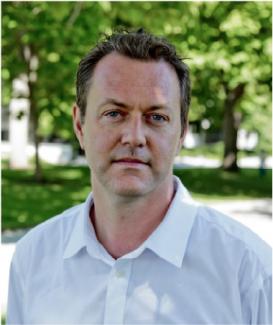
Mark Turin | University of British Columbia
Dr. Mark Turin (Associate Professor, Anthropology) is an anthropologist, linguist and radio presenter. Mark also serves as Chair of the UBC First Nations and Endangered Languages Program and as Acting Co-Director of UBC's new Institute for Critical Indigenous Studies. For over twenty years, Mark’s regional focus has been the Himalayan region (particularly Nepal, northern India and Bhutan), and more recently, the Pacific Northwest. Mark is very privileged to have had the opportunity to work in collaborative partnership with members of the Thangmi-speaking communities of eastern Nepal and Darjeeling district in India since 1996, and since 2014 with members of the Heiltsuk First Nation through a Híɫzaqv Language Mobilization Partnership in which UBC is a member.
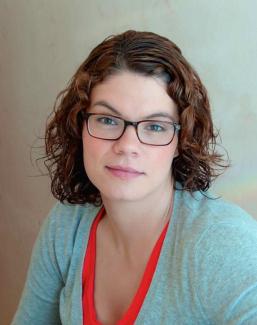
Alona Fyshe | University of Victoria
Dr. Alona Fyshe is an Assistant Professor of Computer Science at the University of Victoria and an Azrieli Global Scholar with the Canadian Institute of Advanced Research (CIFAR). Once a software engineer for Google, she now combines computational linguistics, machine learning, and neuroscience to study the way the human brain processes language and represents meaning (semantics).
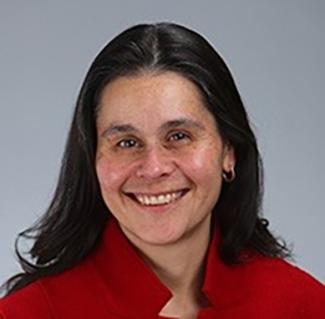
HÉlÈne Deacon | Dalhousie University
Dr. Hélène Deacon is a Killam Professor in the Department of Psychology and Neuroscience at Dalhousie University, where she directs the Language and Literacy Lab. Hélène investigates how children ‘crack the code’ of reading, understanding how language is mapped onto the page, and how they become expert readers. She works with children and adults from across Canada and around the world, as she believes it is vital that we understand how children learn to read and write in English, as well as in other languages, including growing up bilingually. This work is funded nationally by SSHRC and NSERC and has won extensive international recognition, including from the National Academy of Education and the United Kingdom Literacy Association.
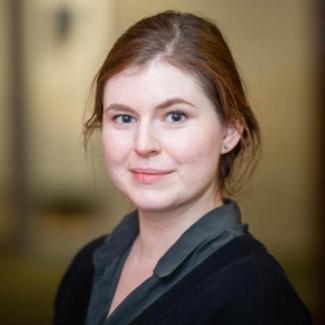
Ella Fund-Reznicek
Ella Fund-Reznicek is the Coordinator of the Language Science Initiative at UBC. In addition to providing general administrative support for LangSci, she is providing administrative and communications support for the ELSL workshop. Ella received an MA in Linguistics at the University of British Columbia in 2016, where she worked with Professor Eric Vatikiotis-Bateson on research on movement, coordination, and singing. Prior to studying at UBC, she studied Linguistics at the University of Kansas, working in Dr. Robert Fiorentino’s Neurolinguistics and Language Processing Lab.
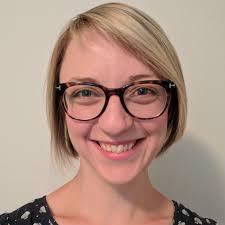
Sophia van Hees
Dr. Sophia van Hees is a Research Development Officer with the UBC Language Sciences Initiative and the UBC Special Programs for Advancing Research Capacity (SPARC). Sophia will be faciltiating the grant-planning portion of the workshop. She has a background in Speech Pathology, and completed a PhD at the University of Queensland focused on the neural mechanisms underlying language rehabilitation post-stroke.
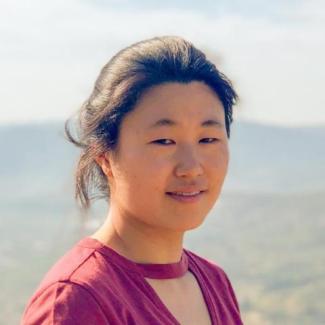
Sheri Choi
Sheri Choi is a PhD student in the department of Psychology at the University of British Columbia under the supervision of Dr. Janet Werker at the Infant Studies Center. She studies foundations for speech perception, focusing on the nature of multisensory representation of speech in young infants, and how speech perception models based on cortical computational principles extends to acquisition of speech. Sheri has provided communications and general admin support in preparation for the workshop, and will be present on-site to provide technical support and facilitate discussion.
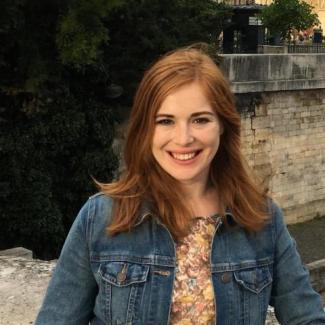
Drew Weatherhead
Dr. Drew Weatherhead is a postdoctoral fellow in the Infant Studies Centre, University of British Columbia under the supervision of Janet Werker. She received her PhD. in Psychology from the University of Waterloo. Her research focuses on how social characteristics of speakers (such as race, gender, nationality, and social group membership) influence speech processing in infants and toddlers. Drew has provided communications and general admin support in preparation for the workshop, and will be present on-site to provide technical support and facilitate discussion.
Attendees
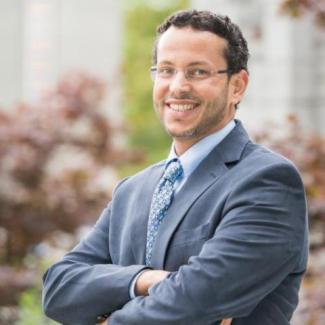
Muhammad Abdul-Mageed
Dr. Muhammad Abdul-Mageed is an Assistant Professor of Information Science in the School of Library, Archival, and Information Studies (SLAIS), UBC. Before UBC, Dr. Abdul-Mageed held various positions in the School of Informatics and Computing, Indiana University, where he also completed a dual Ph.D. in Computational Linguistics and Information Science in 2015, the Center for Computational Learning Systems, Columbia University, and the World Well-Being Project, the University of Pennsylvania. His interests are at the intersection of natural language processing, deep learning, and social media mining.
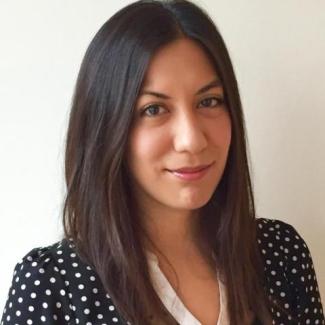
Maria Arredondo
Dr. Maria Arredondo is a postdoctoral fellow at the University of British Columbia’s Infant Studies Centre. Her research investigates how bilingual infants and children become proficient in their languages, which cognitive and brain mechanisms underlie successful language acquisition, and how bilinguals use linguistic information to succeed in school. Her experimental methods include eyetracking, fNIRS and fMRI.
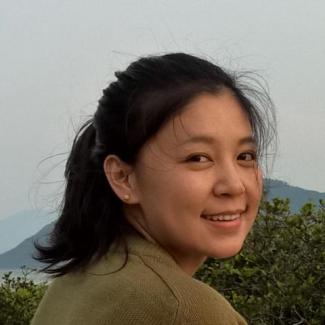
Bendi Tso
Bendi Tso is a Ph.D. student in the Department of Anthropology at UBC. Her research explores how the operation and interaction of different ideologies of linguistic purity, namely standard Chinese and pure Tibetan, play out on the ground among Chone Tibetans whose use of language is characterized by linguistic mixture and fluidity.
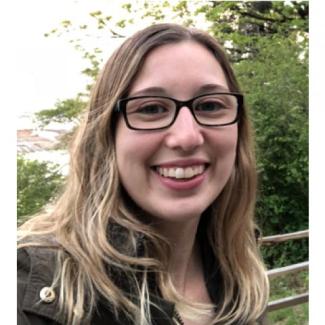
Jennifer Campbell
Jennifer is a PhD candidate in the Psychology department, conducting research in Dr. Geoff Hall's Language Development Centre and Dr. Janet Weker's Infant Studies Centre. She studies the nature of infants' early word representations and how infants use social and linguistic cues to acquire new words.
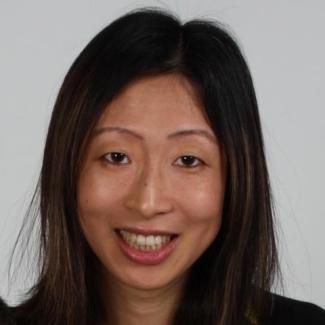
Becky Chen
Dr. Chen's research focuses on bilingual and ELL (English Language Learner) children's language and literacy development. She is interested in how children develop literacy skills (e.g. morphological awareness, phonological awareness, orthographic processing, vocabulary, word reading, and reading comprehension) simultaneously in their first language and second language, and whether these skills transfer between the two languages. Currently, she is running a five-year project on French immersion programs in Toronto and Vancouver. This project has three goals: 1) identify at-risk readers in French immersion with dynamic assessment tools, 2) compare the development of English and French literacy skills between children who are native speakers of English and those who speak another language at home, and 3) examine transfer of literacy skills between English and French. She is also a co-lead of the Language, Literacy and Learning Cluster of the Child and Youth Refugee Research Coalition (CYRRC), an international coalition that conducts research on refugee children and youth. This line of research focuses on language, literacy and well-being of Arabic-speaking children, particularly refugee children. Finally, she conducts cross-cultural studies comparing the development of Chinese literacy skills between Chinese-speaking children in Canada and children in China. In applied practice, she is interested in helping bilingual children who are at-risk readers or with reading disabilities.
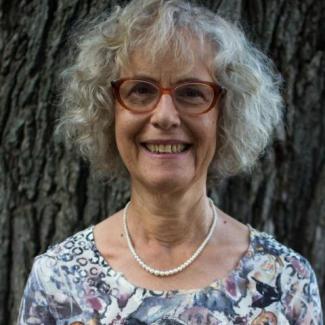
Jan Edwards
Jan Edwards is a professor in the Hearing and Speech Science Department and an Associate Director of the Language Science Center at the University of Maryland. Her research centers on how children learn sounds and words, how this relates to language skills more generally, and consequences for literacy and school success.
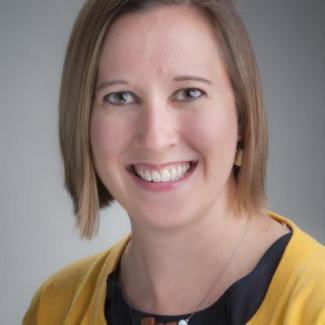
Ashley Farris-Trimble
Dr. Ashley Farris-Trimble is an assistant professor of linguistics at Simon Fraser University. Her work focuses on phonological acquisition (first and second language), phonological processing, and word recognition.She is also interested in theoretical approaches to language acquisition and linguistics in clinical populations
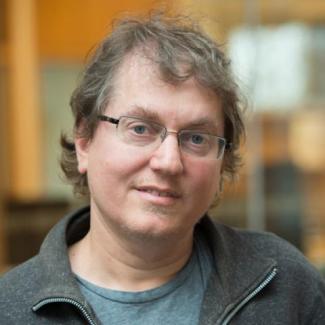
Sid Fels
Dr. Sid Fels is a Distinguished University Scholar at UBC (2004-). He was a visiting researcher at ATR Media Integration & Communications Research Laboratories in Kyoto, Japan (1996-1997). He worked at Virtual Technologies Inc. in CA(1995). He is internationally known for his work in human-computer interaction, biomechanical modeling, neural networks, new interfaces for musical expression and interactive arts with over 300 scholarly publications.
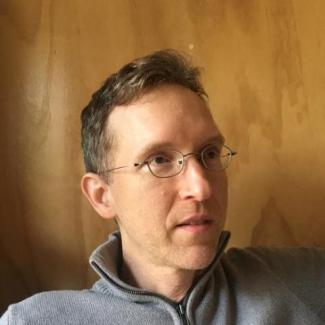
Bryan Gick
Dr. Bryan Gick is the director of UBC’s Interdisciplinary Speech Research Laboratory (ISRL) and the head of the Linguistics department. His overarching research focus is on how people interact with each other and their environment, and how this interaction can inform models of linguistic communication. Bryan has studied this by exploring the physical mechanisms of speech production and their interactions with perception, phonology and phonetics in normal, disordered, and children’s speech, and across languages. In the course of this work, he and his collaborators have developed techniques for applying ultrasound imaging technology to speech research, protocols for studying haptic (tactile) perception of speech, methods for observing low-level planning in speech motor behaviour, and biomechanical simulations.
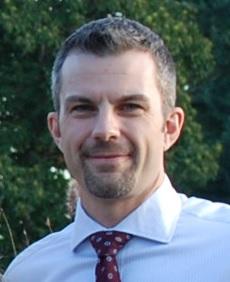
Tony Herdman
Dr. Tony Herdman’s research program focuses on understanding the brain dynamics that underlie many psychological phenomena involved in auditory and visual perceptions, attention, language and memory. He uses behavioural, eye-tracking, and electrophysiological (EEG & MEG) measures to study fundamental principles of these systems and how they develop. One main line of investigation is providing insights into how experience with visual objects (such as letters and words) alters brain dynamics and neural-network communications in typically-developing readers and dyslexics. Another research stream is looking at how auditory selective attention and visual novelty detection in children are affected by socioeconomic disparities. Dr. Herdman is also collaborating with other researchers in the fields of cognition & memory and neuroimaging methodology. He is particularly fascinated by how a brain functions and communicates across multiple dimensions (space, time, and frequency) and how such communication is altered by experience as a brain develops its abundant abilities.
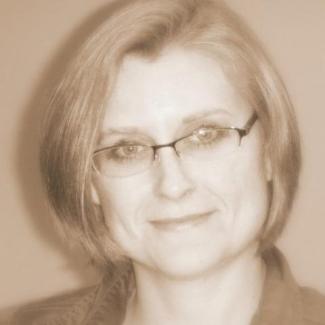
Carla Hudson Kam
Dr. Carla Hudson Kam is a Professor of Linguistics and Canada Research Chair in Language Acquisition at UBC. She uses a variety of techniques to investigate child and adult language learning. Recently, her research has turned to trying to better understand the input that children receive, including information in books they are read.

Padmapriya Kandhadai
Dr. Padmapriya Kandhadai received her M. Sc. in Computer Science and PhD. in Cognitive Psychology. She teaches in Computing Studies Department at Douglas College. Her research focusses on bilingual acquisition in infancy. She takes an interdisciplinary approach to teaching and research to understand the mechanisms that support language, learning and memory.
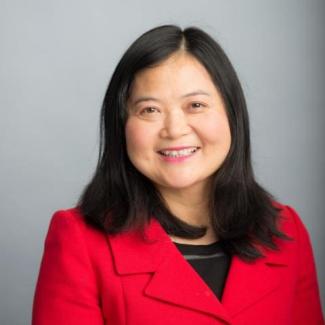
Guofang Li
Dr. Guofang Li is a Professor and Tier 1 Canada Research Chair in Transnational/Global Perspectives of Language and Literacy Education of Children and Youth in the Department of Language and Literacy Education, University of British Columbia, Canada. Her recent research interests span longitudinal studies of immigrant children’s bicultural and bi-literacy development through school, children and youth’s new literacies practices in and out of school, technology-enhanced language teaching in primary and secondary schools, pre- and in-service TESOL teacher education, and current language and educational policy and practice in globalized contexts.

Elise mcClay
Elise graduated from UBC with her MA in Linguistics in 2017, and is currently employed at Simon Fraser University's Language Learning and Development Lab. Her interests include language revitalization, Ktunaxa, prosody, semantic fieldwork, and applied linguistics (especially as pertaining to language acquisition).
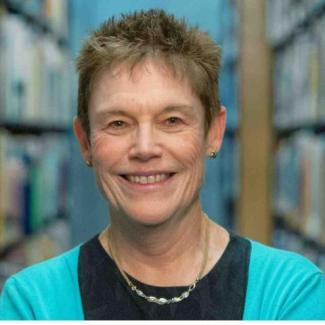
Bonny Norton
Dr. Bonny Norton, FRSC, is a Professor and Distinguished University Scholar in the Department of Language and Literacy Education, UBC. Her current projects address open access digital resources for multilingual children. She is Research Lead of Storybooks Canada (http://www.storybookscanada.ca/) and Research Advisor of Indigenous Storybooks. Her website is: http://faculty.educ.ubc.ca/norton/
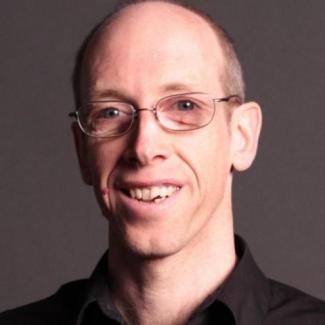
Colin Phillips
Dr. Colin Phillips is Professor of Linguistics at the University of Maryland and Director of the Maryland Language Science Center. His primary research interests are in language comprehension, production, and learning, with a focus on cross-language comparisons. HIs research methods include electrophysiology, eye-tracking, and computational modeling. He also leads efforts to understand the contexts of language use through global language mapping, with applications in science, humanitarian relief, and education.
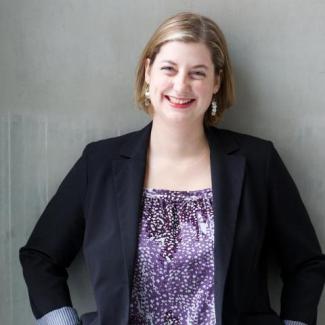
Christine Schreyer
Dr. Christine Schreyer is an associate professor of Anthropology at UBC’s Okanagan campus. Her research focuses on language documentation and revitalization in Canada (with Tlingit and Secwepemctsín speakers), as well as with Kala speakers in Papua New Guinea. Her work on literacy includes helping Kala speakers develop an orthography for their language, as well as materials for immersion schools. She also conducts research on constructed languages (conlangs) and the fan communities that speak/read/write them and is a language creator herself, having helped create the Kryptonian language for the Hollywood Film, Man of Steel (2013).
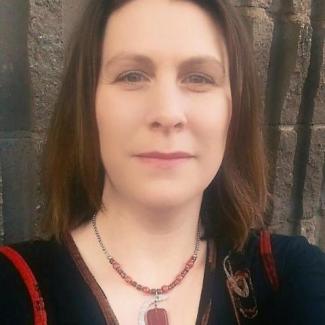
Tamara Sorenson-Duncan
Dr. Tamara Sorenson-Duncan holds a joint post-doctoral position between the Autism Research Centre at the IWK Health Centre and the Language and Literacy Lab at Dalhousie University. Her research interests are: (a) the input and environment factors that lead to language learning success for children from migrant backgrounds; (b) language development and reading comprehension in children from a variety of backgrounds, including monolingual and bilingual children and children with ASD.
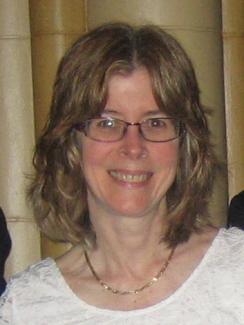
Suzanne Stevenson
Dr. Suzanne Stevenson's research is in computational linguistics and cognitive science, specifically focusing on the automatic acquisition of semantic and syntactic knowledge from large text corpora, and on computational cognitive modeling of child language acquisition and adult processing. Recently, she has worked on models of lexical representation and processing in bilingualism.

Henny Yeung
Dr. Henny Yeung holds a BSc in Neurolinguistics from Duke University, and earned an MA and PhD in Developmental Psychology from the University of British Columbia. He then became a CNRS researcher in the Laboratoire Psychologie de la Perception at the Université Paris Descartes, and is now a faculty member in Linguistics and Cognitive Science at Simon Fraser University.